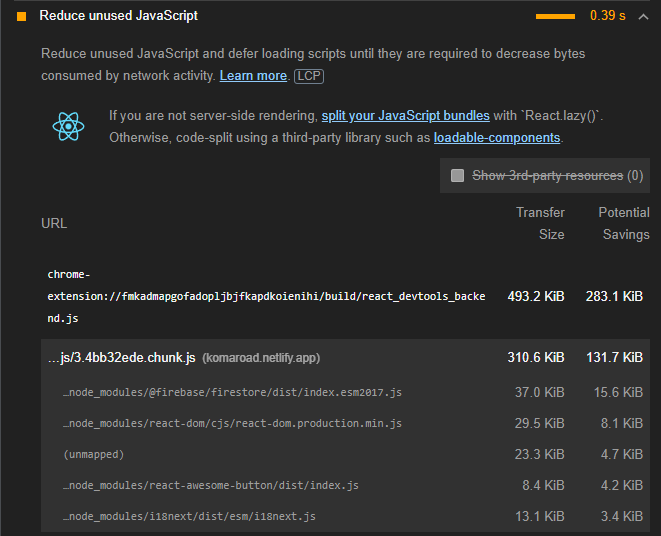
Security News
Open Source CAI Framework Handles Pen Testing Tasks up to 3,600× Faster Than Humans
CAI is a new open source AI framework that automates penetration testing tasks like scanning and exploitation up to 3,600× faster than humans.
react-compress
Advanced tools

Install library into your project (with npm or yarn), how dev:
npm i react-compress --save-dev
---
yarn add react-compress -D
And then just add react compress in your package.json build script like below:
- "build": "react-scripts build",
+ "build": "react-scripts build && react-compress",
And then just run script build like you always do:
npm run build
---
yarn run build
Before react-compress:
Build script with this library:
After react-compress:
You can made your build folder 30% smaller and optimized than it was without this library. How you can see in Example pictures our JS bundle who loaded 0.39s without this library now loaded in 0.2s, it's almost 50%!.
And of course when your project larger this library will give you more profit
If you have some problems, write me, or use issues in this repository
Good luck!FAQs
Easy way to compress your JS bundle when you compile build folder
We found that react-compress demonstrated a not healthy version release cadence and project activity because the last version was released a year ago. It has 1 open source maintainer collaborating on the project.
Did you know?

Socket for GitHub automatically highlights issues in each pull request and monitors the health of all your open source dependencies. Discover the contents of your packages and block harmful activity before you install or update your dependencies.

Security News
CAI is a new open source AI framework that automates penetration testing tasks like scanning and exploitation up to 3,600× faster than humans.

Security News
Deno 2.4 brings back bundling, improves dependency updates and telemetry, and makes the runtime more practical for real-world JavaScript projects.

Security News
CVEForecast.org uses machine learning to project a record-breaking surge in vulnerability disclosures in 2025.